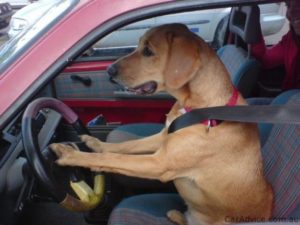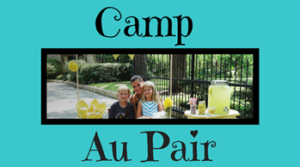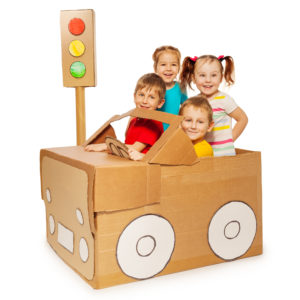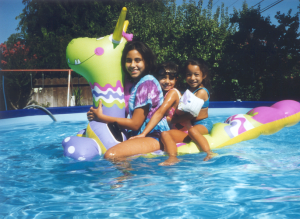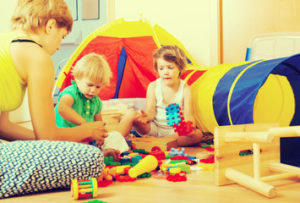Au Pair Driving Tips. Keep Safe!
You have your Georgia Driver’s License and you are ready to drive!
Here are some important tips to keep you and those who drive with you safe:
The most important thing to remember is, to be honest with your host family. If something happens while you are driving, immediately tell your host family. Most hosts will forgive you, but if they discover that you did not tell them, this can lead to a rematch or you might even have to go home early.
Your host family may have some restrictions after you receive the Georgia license. Here are some common ones:
- Your host family should continue to provide support and practice time whenever possible.
- Learning to drive with confidence is a life skill. Along with the privilege of using your host family’s car comes responsibility. It is your shared responsibility with your host family to make every effort to learn to drive safely while you are an au pair. If you feel that you need additional instruction, you may want to consider paying for some lessons until you feel completely comfortable with your driving ability.
- Your community counselor can recommend a driving instructor/school and help coordinate lessons or an assessment. Some instructors may offer a discounted price for au pairs.
- Talk to your host family or community counselor if you have any concerns about driving. NEVER drive if you do not feel safe.
- NEVER, EVER… not even for a moment leave your host child in the car while you park and go inside a place.
Even after you obtain your Georgia Driver’s license:
Your host family will most likely restrict how far the car can go in the first weeks after obtaining a driving license. It takes time to earn your host family’s trust and to build your own confidence.
To reduce your risk of an accident drive by yourself only in the first month. After that restrict the number of friends in the car to only one other person.
Map out school zones or road work areas in your normal path of driving to avoid a large speeding fine.
Be very familiar with driving laws requiring you to stop for school buses. Review our video on the FB page.
Understand that driving and parking in downtown Atlanta is risky. There are currently large numbers of carjackings and smash-and-grab crimes occurring inside the city. Your host family may determine that driving this far is off-limits for their car.
Driving late at night is dangerous because of drunk drivers on the road. In Georgia, after 3am for every five cars that pass you, three of those five drivers have been drinking alcohol. Host families often have car curfews because of this reason.
New Driver Safety Tips:
Ask questions about the dashboard indicator lights. These are very important and some of them could indicate an urgent problem that would require you to pull over in a safe place and turn the car off.
BE aware that if you have one beer or one glass of wine or one mixed liquor drink and you drive within one hour—you will test positive for alcohol and can be charged with a DUI (driving under the influence of alcohol). Age 21 is the legal age to drink alcohol in the USA. If you drink alcohol while out, use Lyft or Uber to safely return home.
USA police departments make a lot of money when they find someone drinking and driving. They are LOOKING for any excuse to pull you over and test you. If you are arrested for driving while drinking, you or your family back home will need to get you out of jail. APIA will NOT get you out of jail. This is about $7000.00 and then you will need to go home.
If you damage someone else’s car, and no one is hurt, you still must call the police. You must stop, move the car, and exchange names and insurance info. Take pictures of the car and the damage you made and any damage other than yours on their car. If you have hit a parked car with no driver, take pictures and leave your name and the host family’s phone number. Failing to do these things, and not stopping is considered ” leaving the scene of an accident”. The penalty for this can be as much as five years in jail and several thousand dollars in fines.
Driving in the rain or on wet streets increases your likelihood of having an accident. Sometimes it is best to stay home if you know bad weather is on the way.
Make a system for checking behind the car before backing up. Use the rearview mirrors and backup camera, but also look behind the car before getting in. When in a driveway, look for children, dogs, shrubs, or toys. Most Au pair accidents involve backing up.
When entering a busy street or highway from a parking lot, look for the nearest exit with a traffic light and go there to enter the street. Trying to cross a busy street with no signal is dangerous.
At intersections, look twice before pulling out.
If someone is yelling or honking at you to enter a busy street or intersection, ignore them and wait until you are confident. Accidents happen when you are pressured to move when you are not ready.
Parking a big American car in a small American space is difficult. Practice parking in small spaces outside your host family home with trash cans. Your host family will respect your efforts to be responsible.
Do not hold/talk with your cell phone while driving. This is a law in Georgia. Do not listen to earphones to hear music from your cell phone.
Traffic along busy shopping malls requires special caution. Go slower and do not try to change lanes. Avoid these areas at holiday times.
Let it pass by if you realize you are about to miss your turn. You can safely turn around and go back, but trying to make a last-minute maneuver will cause an accident.
Never turn your head to speak to another person in the car. Children will cry and misbehave, but you must keep your eyes on the road ahead.
If your car runs off the road, don’t panic. Turning the steering wheel sharply to get back on the road will cause the car to turn over or cross into the oncoming traffic. Instead, slow down and travel off the road until you can safely and slowly return back to the road.
While traveling in a neighborhood, use caution and go very slowly. Dogs and children can quickly dart in front of you.
Never let the gas get lower than half a tank. Running out of gas can put you and your host family’s children in danger. Use your own money and give the receipt to the host family.
Many intersections now have automatic cameras that take pictures of everyone going through the light. If you enter the intersection on a yellow light, and it turns red while you are beneath it, you will be ticketed. Never slam on the brakes when approaching the yellow light. Slow down and use caution to stop appropriately.
Be mindful of school zones. The fine for speeding here is very high.
Be mindful of school buses. When you see the yellow flashing light, prepare to stop.
When you see that a police car is pulled over on the side of the road. Merge into the other lane or slow down to make sure the police officer is safe. This is called the “Move Over Law”.
Your host family can require you to pay 500.00 towards any damage that is caused to their car while you are driving. Be a responsible driver and study the situations that you are not sure about. Ask questions to clear up any confusion and always use caution.
For your information: Chapter (or section 5 and 7) have detailed information about the laws and road signs.
https://online.flipbuilder.com/hatf/oknz/

